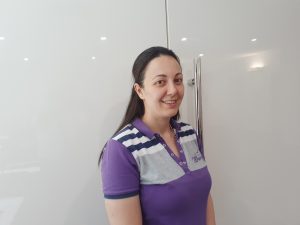Refugee families supported to flourish
In Melbourne’s northern suburbs, a new community group is quietly going about the business of supporting newly arrived refugee families from Syria.
Called ‘Australian Jasmine Families’, the group’s name references the fact that the Syrian city of Damascus is called the ‘City of Jasmine’, where the plant is widely cultivated for its characteristic fragrance.
Established during the COVID-19 pandemic, the group coordinates activities for children youth and adults that support their successful resettlement in Australia, allowing them to flourish.
 Co-founder Farah Hadad said the activities include singing, dancing, choirs, dinners and religious events.
Co-founder Farah Hadad said the activities include singing, dancing, choirs, dinners and religious events.
“We coordinate these activities as way of welcoming newly arrived families and supporting them to settle and start new lives in Melbourne,” Farah said.
The group also runs education and information sessions.
“We run these sessions according to people’s needs. They might be about finding a job, citizenship pathways or how to access services,” Farah said.
“We also celebrate out Syrian culture with events like Syrian Mother’s Day which falls on March 24 and we also have religious events at Christmas.
“The whole idea is to support Syrian families who have just arrived so that they feel at home; and we try to introduce them to Australia society and culture and help them navigate what is an unfamiliar system.
“We hold camps, excursions and parties and dancing,” she said.
Farah arrived in Australia in 2017. She and her family fled their home in Aleppo because of the civil war and spent a year living precariously in Lebanon before settling in Melbourne.
“Life in Lebanon was very difficult. Could not work and our future was uncertain,” she said.
Farah completed a bachelor’s degree in biochemistry in Aleppo in 2007. After arriving in Melbourne, she completed a master’s degree in biotechnology but struggled to find work in that field.
“It has been very difficult to find work in this field. I have tried to get a job, but I have no local experience, so that has made things hard,” she said.
Seeking a ‘Plan B’, Farah completed diplomas in community service and interpreting and found work in the community sector.
She now works as a bi-cultural worker at Co-Health and as a Case Worker at Whittlesea Community Connections.
“It is not the area I studied in, but it’s rewarding work and I’m passionate about helping establish themselves and rebuild their lives as I have,” she said.
After over a decade of conflict, Syria remains the world’s largest refugee crisis. Since 2011, more than 14 million Syrians have been forced to flee their homes in search of safety.
More than 7.2 million Syrians remain internally displaced in their own country where 70 percent of the population is need of humanitarian assistance and 90 percent live below the poverty line. Approximately 5.5 million Syrian refugees live in the five countries neighbouring Syria – Turkey, Lebanon, Jordan, Iraq and Egypt.
Australia has accepted more than 12,000 Syrian refugees since the conflict began.
Germany is the largest non-neighbouring host country with more than 850,000 Syrian refugees.












